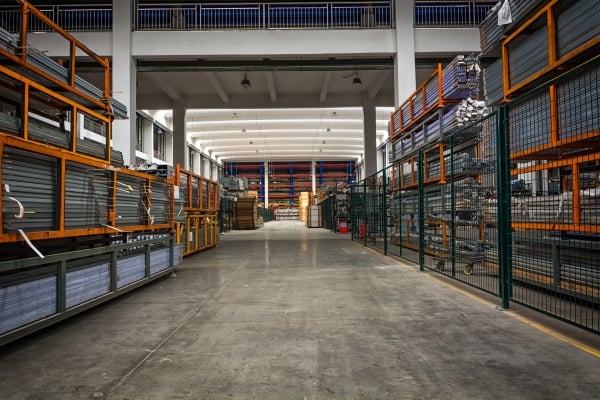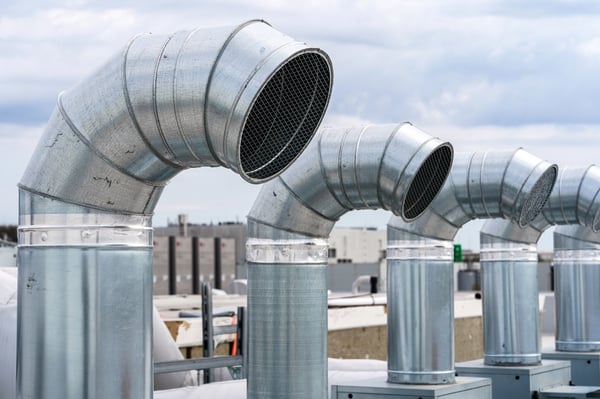Maintaining a factory is no easy task. It's a big job that requires hard work and dedication. If you're not careful, it can also be very dangerous. That's why it's important to have a plan for cleaning and maintaining your factory.
Why is it Important to Keep Your Manufacturing Facility Clean?
Keeping your factory in good condition is important for many reasons. Not only does it make your facility look better, but it also helps reduce the risk of accidents and illnesses. A clean factory can help improve employee morale, keep equipment running smoothly, and even increase your productivity.
What is deep cleaning?
Deep cleaning is a process that goes beyond basic surface-level cleaning. It’s an intensive process that requires scrubbing, pressure washing, and sometimes even special chemicals to get all the dirt and grime out of factories. In turn, when workers' work station and work areas are cleaned and maintained regularly, they can focus better and be more productive.
Here are some of the advantages of a clean and organized work environment:
-
It increases overall productivity by reducing the number of stoppages and errors due to poor maintenance.
-
It reduces the risk of injuries and illnesses caused by hazardous working conditions.
-
It helps prevent equipment damage caused by dirt, dust and debris buildup therefore helping maintain the integrity of your machinery and equipment.
-
It improves employee morale by making them feel more comfortable in their working environment and can reduce stress levels.
-
It can help reduce energy costs by eliminating the build-up of dirt and dust on electrical components, fans and motors. It can improve the quality of products produced by removing any contaminants or debris that may be present in the manufacturing process.
-
It improves customer service by providing a safe and clean environment for visitors, customers or clients.
Moreover, a clean industrial facility prevents illness from spreading among employees whilst also improving the air quality. Now that you know why it's important to keep your factory clean and organized.

Here are 10 Tips to Clean & Maintain an Industrial Factory:
1. Establish a cleaning and maintenance schedule
The best way to keep your factory clean is to create and stick to a regular cleaning plan. This plan should include both daily and weekly routines, detailing the specific tasks that need to be completed in order to keep everything in tip-top shape. Daily cleaning tasks should include sweeping, mopping, and dusting. Weekly tasks may include vacuuming carpets, scrubbing toilets and drains, and wiping down surfaces.
Scheduling a deep clean once a month or every other month is also a good idea, as this will ensure that you address any areas that may have been neglected in your regular maintenance schedule.
Furthermore, you also need to train employees on proper cleaning techniques and how to use the right tools for their particular jobs.
2. Make sure all equipment is regularly maintained
It's important to inspect all machinery and equipment on a regular basis in order to ensure that it's in good working condition.
Checking for any wear or damage, lubricating moving parts, and replacing parts as needed are all important parts of regular maintenance. Doing so will help prevent breakdowns and make it easier to detect any potential safety hazards.
3. Disinfect surfaces regularly
Another important step in keeping your facility clean is to disinfect all surfaces on a regular basis. This includes countertops, desks, floors, and walls. You can use a combination of water and detergent to get rid of dirt and grime but be sure to follow up with a disinfectant approved for use in.
4. Use Appropriate Cleaning Supplies
When it comes to cleaning your manufacturing facilities, it's important to use the right supplies. Industrial-grade cleaners are designed specifically for those tough, industrial cleaning jobs and can help you get better results. Especially for high-traffic areas, it's important to use the right type of cleaning supplies.
Some industrial cleaning supplies and equipment needed for deep cleaning include:
-
Industrial-strength vacuum cleaners
-
Pressure washers
-
Steam cleaners
-
Chemicals, disinfectants and sanitizers
-
Scrub brushes and sponges
-
Mops and brooms

5. Use Proper Personal Protective Equipment (PPE)
It's important to use the right protective gear when cleaning your factory facility. This includes safety glasses, gloves, respirators, and other necessary equipment depending on the type of cleaning job.
Not only does PPE keep you safe from any potential hazards, but it can also help protect your clothing and skin from being exposed to corrosive or hazardous chemicals.
6. Utilize a Waste Management Program
To keep your factory clean and free from hazardous materials, you need to have an effective waste disposal system in place.
This includes regular waste collection, recycling programs and proper disposal of any hazardous materials. Set a designated area for waste materials and make sure to label it clearly.
In addition, ensure that your storage areas are free from clutter and that they are regularly checked for signs of moisture or mold.
7. Educate and Train Employees on Cleaning Procedures
The workplace is a critical component of any cleaning and maintenance plan. To ensure that your employees are following the correct procedures, it's important to train them on how to identify safety hazards, and follow proper safety protocols and cleaning techniques.
Making sure everyone is aware of the proper way to use equipment, chemicals, and other materials will help reduce the risk of injury or accidents in the workplace.
To ensure a clean workspace, you need to make sure all employees are aware of the proper cleaning techniques and procedures. This includes the use of personal protective equipment (PPE), the correct way to store materials and how to safely dispose of any hazardous materials.
8. Store Supplies Properly
In order to keep clutter at bay, your warehouse needs to be properly organized. This means having a designated area for all supplies and equipment and making sure they are properly labeled. Storing your supplies in a neat and orderly fashion in your warehouse will help you find items quickly when needed and streamline your shipment deliveries.
It's also important to keep hazardous materials away from food sources and other areas of the factory where they could cause harm. Properly labeling containers can also be helpful in this regard, as it will allow employees to easily identify the contents inside.
9. Invest in Regular Inspections and Maintenance
Routine inspections and maintenance are essential for keeping your factory in top condition. Regularly checking for potential problems and making repairs as needed can help prevent costly damages over time.
Inspections should be done on a regular basis to check for signs of wear and tear, defects, or other issues that may need to be addressed. This includes checking mechanical components and electrical systems, inspecting safety equipment, and testing air quality. Deep cleans should also be done periodically to ensure that the manufacturing floor is safe and free from dust, dirt, and other debris.

10. Replace Ventilation Filters Regularly
The filters in the system should be changed regularly to keep air quality levels at an acceptable level. Since it is a manufacturing facility, this means that there is a higher risk of hazardous particles or chemicals being released into the air.
Changing out the filters on a regular basis can help reduce this risk and keep your facility safe and productive. It's also important to test the system for any leaks or other problems, as these could lead to poor indoor air quality. This means replacing filters every few months or whenever you notice a decrease in performance. It's also important to check the ducts for any blockages, as these can decrease the efficiency of the system.
By following these tips, you can keep your industrial factory clean and well-maintained for years to come. Investing in quality supplies, training employees on proper cleaning protocols, and investing in regular inspections are essential for maintaining a safe and efficient workspace.
Time for a Clean Up!
In industrial settings, cleanliness is critical for workplace safety and productivity. Keeping your factory clean and well-maintained requires a comprehensive plan that includes everything from deep cleaning to proper storage of supplies. By following these tips, you can ensure that your industrial facility remains in top shape while ensuring the safety of everyone who works there.
Furthermore, it is important to remember that maintaining a clean and safe environment requires regular maintenance and inspections. This means inspecting any equipment, systems, or other components on a regular basis to ensure that they are in proper working condition and up-to-date with safety regulations. Investing in quality supplies can also help reduce the risk of accidents or injuries due to improper usage.
Overall, following these tips and investing in regular maintenance is essential for keeping your industrial factory clean and well-maintained. This will ultimately help you keep costs down while ensuring that everyone who works there is safe. Cleanliness is critical, so be sure to stay on top of it! Have any questions? Contact our team of experts at Mastercraft USA! We offer a wide ride range of equipment for different projects such as ash vacuums, asbestos removal, flood relief, air blowers, floor machines, and more.
1 Comment